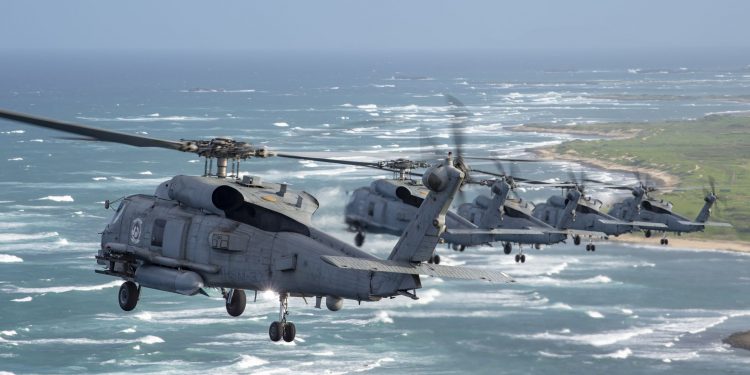Taiwan has opted out of purchasing anti-submarine helicopters from the United States because they are too expensive, its defence minister said Thursday.
The island was planning to buy up to 12 Seahawk choppers but the deal has been scrapped as Taipei prioritises lower cost, more mobile weaponry to counter any threat from China.
Local media reported earlier this year that the sale could fall through after Washington concluded the helicopters were not the best bet for Taiwan’s “asymmetric warfare” needs.
Taiwan has shifted to a “porcupine” strategy that seeks to equip the island to repel an attack from a far larger Chinese military.
On Thursday defence minister Chiu Kuo-cheng confirmed the chopper deal was dead.
“We feel the price is too high and it’s above what we can afford,” he told lawmakers.
Taiwan’s 23 million people live under the constant threat of invasion from China, which views the democratic island as its territory.
Russia’s invasion of Ukraine has heightened fears that Beijing might one day follow through on threats to annex its smaller neighbour.
Taiwan’s defence ministry earlier this week revealed that key deliveries of other weapons from the United States had hit roadblocks.
The Russia-Ukraine war has led to a shortage of Stinger anti-aircraft missiles, while production line issues were delaying a delivery of M109A6 Paladin self-propelled howitzers.
Chiu indicated Taiwan is now looking for suitable replacements.
“We have other alternatives and we definitely will have responsive measures. We will not throw our hands up because (these weapons) are not available. The military will do our job of preparing for combat,” Chiu told lawmakers.
Stingers are highly portable shoulder-launched missiles that have been invaluable to Ukrainian forces fighting off Russian air power.
M109A6 Paladins are massive artillery guns on a tank chassis that can be easily moved, making them harder to spot and take out.
Western countries have been sending Ukraine thousands of the surface-to-air missiles and shoulder-mounted launchers, which are effective against helicopters and low-flying planes. Washington has promised 1,400.
Raytheon Technologies, which makes Stingers, said last month it would not be able to accelerate production of the missiles before 2023 due to a lack of parts.
The United States agreed to sell Taiwan 250 Stinger missiles as part of a 2019 deal worth more than $2.2 billion that sparked a protest by China.
Washington has remained a key ally and leading arms supplier to Taipei despite switching diplomatic ties to Beijing in 1979.











